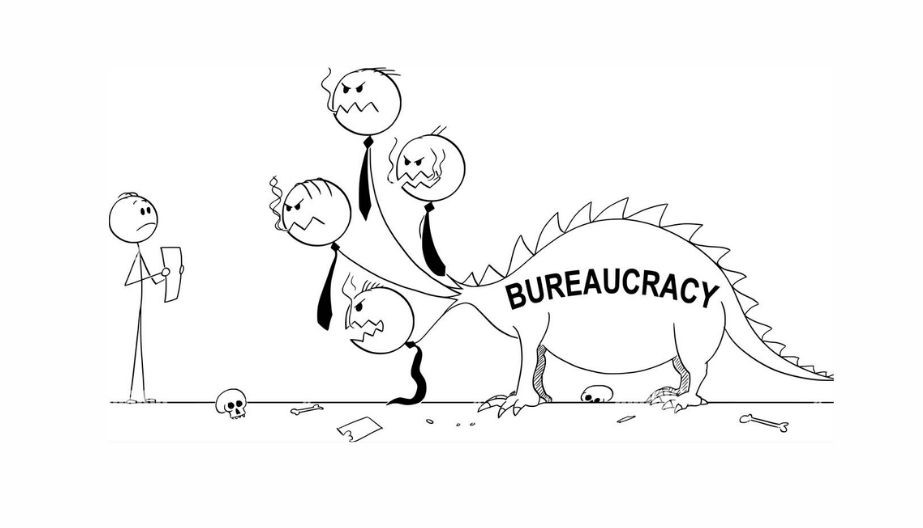Breaking the Shackles of Bureaucracy: Bangladesh’s Next Freedom Fight
Sheikh Mohammad Danial
Published: 15 Mar 2025

Bangladesh has won its freedoms, one after another. We broke free from old colonial rule, endured a language dictatorship, and then wrestled our way out of yet another authoritarian grip, popularly known as July 36. Each victory has added a feather to our wings, like our right to speak our language, our right to call ourselves Bengalis with pride, and now, the right to speak our minds without fear of persecution.
Yet, there is one enemy we have never defeated, the monstrous, soul-crushing, progress-killing bureaucracy that still rules over us like the ghost of our colonial past.
Ask any bureaucrat, and they will tell you that the system ensures checks and balances in governance. If that were true, then someone please explain to me how Bangladesh lost its democratic process in the past few years. Or maybe that’s a question for "lesser minds" like mine.
I have personally felt the wrath of this slow, soul-crushing bureaucracy is a machine built to ensure nothing gets done unless someone benefits from the delay. As an entrepreneur, I’ve experienced it all from harassment to endless red tape, from corruption to outright attempts by senior bureaucrats to undermine legitimate business ownership in favor of hostile takeovers. Last year when I finally decided to reduce my exposure to the bureaucracy, I found a foreign investor willing to buy my equity in an RMG factory.
At first, everything was smooth. My foreign partners were excited. The deal was solid. The numbers checked out. But then we encountered the real ruler of Bangladesh: the bureaucracy.
The permits, the approvals, the endless delays; my foreign partners simply could not fathom why it would take so long for a basic business transaction. I went from desk to desk, dragging along my brother and my elderly father, hoping someone, anyone would be willing to push a file forward. It wasn’t about laziness or even personal malice. The real problem, I realized, was systemic.
The civil service isn’t structured to encourage efficiency or effectiveness. Their only KPI is ensuring they don’t get blamed for procedural mistakes. This is why our system is famous for issuing a gazillion circulars, so that no one is ever entirely sure what the actual law is. The result? Process takes precedence over outcomes.
While I encountered many civil servants who genuinely want change, the machine they work within is designed to do one thing, move as slowly as possible, so that no one takes responsibility for anything.
Now, imagine the impact this has on business. When the world is looking for alternatives to China and India, Bangladesh should be the obvious choice. We have the workforce, the talent, and the resilience. However, our bureaucracy is our single biggest enemy, it kills the entrepreneurial spirit, repels foreign investors, and keeps us trapped in a cycle of inefficiency.
I follow Elon Musk’s antics like many others (yes, I follow that with glee), and while I don’t agree with everything he does, his war against government inefficiency is something I admire. If only we had someone like that in Bangladesh someone willing to take a flamethrower to the layers of redundant approvals, pointless delays, and unnecessary permissions, we too need something similar to DOGE (Department of Government Efficiency, that Musk is heading at US). Instead, we have bureaucrats who seem to believe that their greatest contribution to society is stalling progress as much as possible. I can only hope and pray that we find someone in Bangladesh willing to do the same.
We are at a crossroads. Either we reform our bureaucracy, or we let it strangle our future. We fought for our independence. We fought for our democracy. Now, we must fight for our right to build, innovate, and succeed free from the chains of a system that was never meant to serve us in the first place.
Reform must come. If not now, then sadly never!

